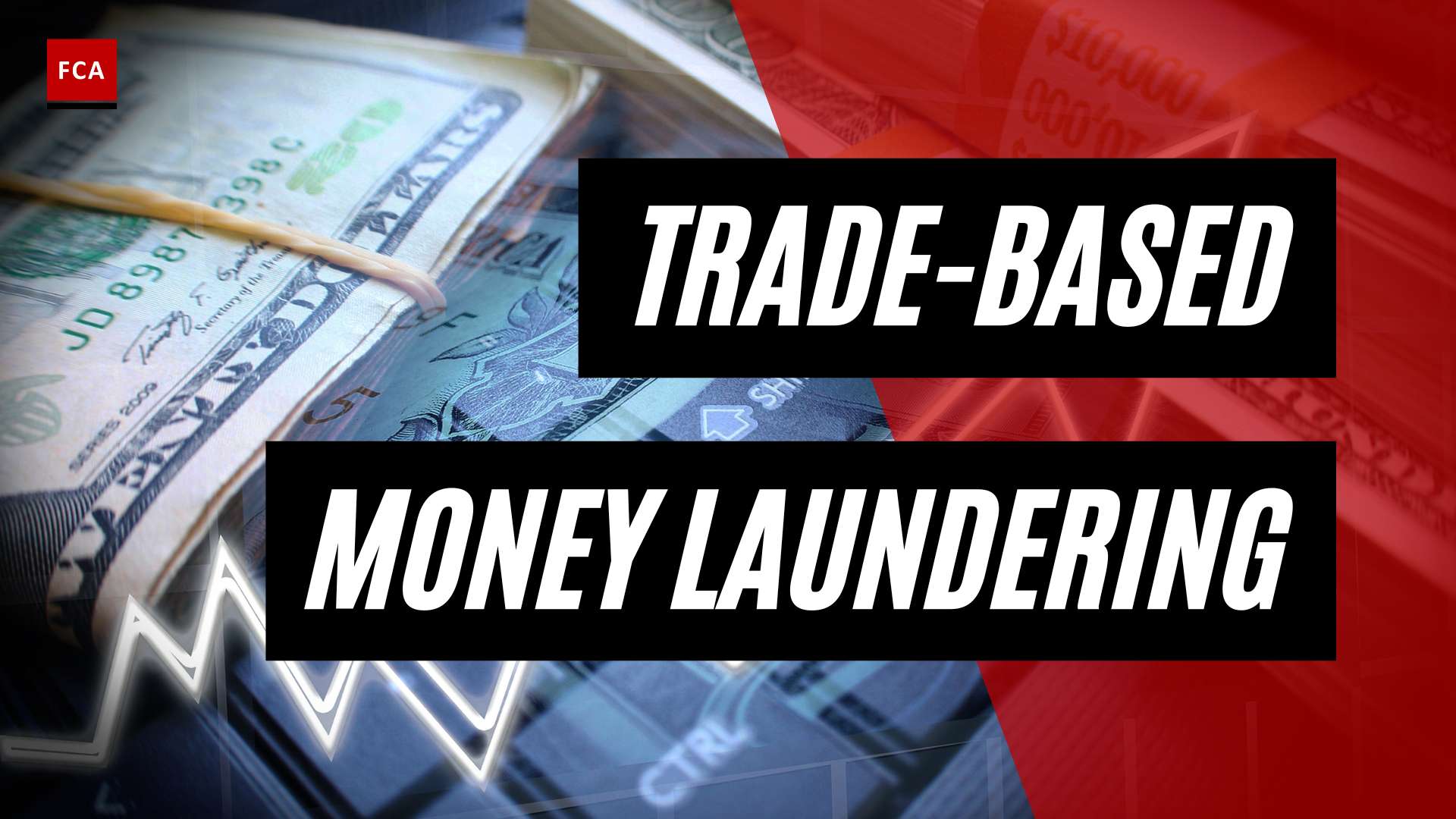Understanding Regulatory Compliance
In the world of business, regulatory compliance plays a pivotal role. It is especially crucial in sectors beyond the financial industry, where the presence and impact of regulations are often underestimated. This section aims to shed light on the concept of regulatory compliance, its importance, and its relevance for non-financial businesses.
What is Regulatory Compliance?
Regulatory compliance refers to the adherence by businesses to laws, regulations, and guidelines relevant to their operations. These regulations can span across various aspects, such as health and safety, environmental standards, data privacy and security, and advertising. For non-financial businesses, compliance is not just about meeting the mandatory regulatory requirements but also about fostering a culture of accountability, integrity, and transparency.
Compliance can be a complex process, particularly for small businesses that may lack dedicated legal or compliance departments. However, there are resources available, such as legal counsel or compliance software, that can assist these businesses in navigating these requirements effectively.
For more specific information on Anti-Money Laundering (AML) compliance for non-financial businesses, you can visit our article on AML compliance for non-financial businesses.
Importance of Compliance in Business
Non-compliance with government regulations can lead to severe consequences, including financial penalties, legal actions, government investigations, and even the closure of the business. Therefore, it is critical for non-financial businesses to ensure they are compliant at all times (Fundera).
Moreover, data security and privacy regulations, such as the General Data Protection Regulation (GDPR) in the European Union or the California Consumer Privacy Act (CCPA) in the United States, necessitate businesses to safeguard customer data and uphold privacy rights. Non-compliance with these regulations can result in hefty fines and reputational damage.
Regulatory compliance is not just about avoiding penalties. It also plays a significant role in building a company’s reputation and trust, attracting investments, improving operational efficiency, and safeguarding the business from potential risks.
Staying informed about changes in regulations and updating policies accordingly is a key part of ensuring ongoing compliance. Businesses can engage with industry associations, attend compliance seminars, and monitor regulatory updates to stay ahead of changes and avoid compliance issues (Fundera).
In essence, understanding and implementing regulatory compliance is an investment that can yield significant benefits for non-financial businesses in the long run. For further details on how to establish effective AML policies, procedures, controls, and more, explore our resources on AML for non-financial businesses.
Compliance in Non-Financial Businesses
In today’s globalized and interconnected business environment, regulatory compliance is crucial for all businesses, not just financial institutions. This is particularly the case for non-financial businesses, which must navigate a complex landscape of different types of regulations.
Different Types of Regulations
Non-financial businesses are subject to a variety of government regulations, such as health and safety regulations, environmental regulations, privacy regulations, and advertising regulations, among others. These regulations seek to ensure the safety of workers and consumers, protect the environment, safeguard personal data, and prevent misleading or false advertising practices.
For more information about anti-money laundering (AML) compliance for non-financial businesses, you can refer to our article on AML compliance for non-financial businesses.
In the context of data protection, regulations such as the General Data Protection Regulation (GDPR) in the European Union or the California Consumer Privacy Act (CCPA) in the United States require businesses to protect customer data and privacy rights. These data privacy and security regulations are of increasing importance in today’s digital age, and non-compliance can result in significant fines and reputational damage.
Additionally, non-financial businesses must comply with regulations such as the Foreign Corrupt Practices Act (FCPA) and the Health Insurance Portability and Accountability Act (HIPAA) to avoid penalties or legal actions. Compliance with these regulations is essential for businesses to operate smoothly and avoid potential financial losses due to fines or legal fees (LendingTree).
Impact of Non-Compliance
Non-compliance with government regulations can lead to severe consequences for businesses. This includes financial penalties, legal actions, government investigations, and even the closure of the business.
Businesses must stay informed about changes in government regulations and update their policies and practices accordingly to ensure ongoing compliance. Engaging with industry associations, attending compliance seminars, and monitoring regulatory updates can help non-financial businesses stay ahead of regulatory changes and avoid compliance issues (Fundera).
For detailed guidelines on AML requirements, policies, procedures, and controls for non-financial businesses, refer to our articles on non-financial businesses and AML requirements, AML policies for non-financial businesses, AML procedures for non-financial businesses, and AML controls for non-financial businesses.
In conclusion, compliance is not an option but a necessity for non-financial businesses. It is a strategic investment that not only mitigates risks but also enhances business reputation and fosters trust with customers, employees, and stakeholders.
Key Regulations in Different Sectors
The breadth and depth of regulations that non-financial businesses must adhere to can vary significantly based on the industry and geographic location. However, three key areas of regulatory concern cut across most sectors: data privacy and security, health and safety, and environmental regulations.
Data Privacy and Security Regulations
In a digital age where data is often referred to as the “new oil,” businesses of all types must adhere to strict data privacy and security regulations. Regulations such as the European Union’s General Data Protection Regulation (GDPR) require consumer notification within 72 hours of a data breach occurrence, making it one of the strictest guidelines globally (Helpy.io).
Notably, data breaches can occur rapidly, with most taking place in less than a minute. Regrettably, 80% of businesses are unaware when breaches occur, leaving them vulnerable to significant financial losses and damage to their reputation.
To help ensure compliance with these regulations, businesses can leverage services like Sensitive Data Discovery, Static Data Masking, Dynamic Data Masking, Privacy Enhancing Technologies, Database Activity Monitoring, and Data Subject Access Rights Automation. Additionally, organizations like Mage Data enhance their data security by obtaining the ISO 27001 certification, reflecting their commitment to compliance with international standards for information security management.
Health and Safety Regulations
Health and safety regulations are a critical aspect of compliance for non-financial businesses, especially those in sectors such as manufacturing, construction, and food services. These regulations aim to ensure safe working conditions for employees, prevent workplace injuries and illnesses, and protect consumers from potential health hazards.
Non-compliance with health and safety regulations can result in hefty fines, legal penalties, and reputational damage. Businesses can ensure compliance in this area by implementing robust health and safety policies, conducting regular safety audits, and providing comprehensive health and safety training for employees.
Environmental Regulations
Environmental regulations are becoming increasingly important as businesses globally are held accountable for their impact on the environment. These regulations cover areas such as waste management, pollution control, and the use of natural resources.
Non-compliance with environmental regulations can lead to severe penalties, including fines, legal action, and damage to the company’s reputation. Businesses can ensure compliance by implementing sustainable practices, investing in green technologies, and conducting regular environmental audits.
In all these areas, a robust AML compliance program can greatly assist non-financial businesses in navigating the complex landscape of regulations, reducing the risk of non-compliance, and promoting a culture of compliance within the organization.
The Role of Technology in Compliance
Technology is becoming an increasingly crucial tool in the realm of compliance for non-financial businesses. It has the potential to improve compliance processes, making them more efficient and less prone to human error. The two main areas where technology is being heavily utilized are in automation and artificial intelligence.
Automation in Compliance Processes
Automation can play a significant role in streamlining compliance efforts. By automating routine and repetitive tasks, businesses can reduce the risk of human error, free up valuable resources, and increase the overall effectiveness of their compliance programs.
Automation can be particularly beneficial in areas such as reporting and auditing. For instance, automated systems can be set up to generate regular reports, monitor transactions, and even flag any suspicious activities. This not only ensures timely and accurate reporting but also aids in detecting potential compliance issues early. For more information on reporting, check out our article on aml reporting for non-financial businesses.
Furthermore, automation can significantly improve the efficiency of compliance audits. With automated tools, businesses can easily track, manage, and document compliance processes, making audits smoother and more effective. For more details on audits, please refer to our article on aml audits for non-financial businesses.
Role of Artificial Intelligence
Artificial intelligence (AI) is another technological advancement that’s making a significant impact on the field of compliance. AI-powered tools can analyze vast amounts of data quickly and accurately, providing valuable insights and predictions.
AI can be particularly useful for risk assessment, a crucial aspect of any compliance program. By analyzing patterns and trends in large datasets, AI can help businesses identify potential risks and take preventive measures.
AI can also assist in maintaining up-to-date knowledge of regulatory changes, a task that can be quite challenging given the dynamic nature of regulatory environments. AI tools can monitor regulatory updates and alert businesses to any changes that may impact their compliance status.
Overall, the use of technology in compliance can lead to more robust and efficient compliance programs. Whether through automation or artificial intelligence, technology can help non-financial businesses navigate the complex landscape of compliance more effectively. For more information on setting up a compliance program, refer to our article on aml compliance for non-financial businesses.
Building a Robust Compliance Program
Creating a robust compliance program that addresses the specific needs of non-financial businesses is crucial in reducing risks, improving operational efficiency, and fostering trust with customers, partners, and regulators (Horizons).
Key Elements of a Compliance Program
A compliance program for non-financial businesses must be comprehensive, encompassing policies, procedures, and monitoring mechanisms that ensure adherence to relevant regulations. It’s not just about putting rules in place; a strong compliance culture within the organization is vital for mitigating compliance risks and avoiding legal consequences.
Here are key elements to consider when building a compliance program:
- Policies: Develop clear, concise, and accessible policies that conform to anti-money laundering regulations for non-financial businesses.
- Procedures: Establish procedures that guide operations in line with the organization’s policies. Include steps for AML reporting for non-financial businesses.
- Controls: Implement internal controls to detect and prevent non-compliance. This could include transaction monitoring, customer due diligence, and AML controls for non-financial businesses.
- Training: Regularly train employees on AML compliance for non-financial businesses to ensure they understand their responsibilities and the consequences of non-compliance.
- Audit: Conduct regular audits to identify and address any compliance gaps. Make sure to include AML audits for non-financial businesses in your auditing process.
- Technology: Utilize technology to improve compliance processes. Automation and artificial intelligence tools can help streamline compliance efforts, reduce human error, and enhance the overall effectiveness of compliance programs (Horizons).
Training and Auditing in Compliance
Training and auditing are critical components of a robust compliance program. Regular training ensures that employees are aware of the latest compliance requirements and understand how to apply them in their daily work. AML training for non-financial businesses can help employees identify potential compliance risks and take appropriate steps to mitigate them.
Auditing, on the other hand, allows businesses to assess the effectiveness of their compliance program and identify potential gaps. Regular audits help ensure that the company’s compliance procedures remain effective and up to date. Auditing also provides an opportunity for businesses to demonstrate their compliance efforts to regulators and stakeholders, which can help enhance trust and confidence in the company’s commitment to compliance.
By incorporating these elements into their compliance program, non-financial businesses can navigate the complex regulatory landscape more effectively and ensure that they meet their compliance obligations.
Future of Compliance
Looking towards the future, the landscape of regulatory compliance is expected to witness significant transformations. These changes are driven by several factors, including the evolving regulatory environment and the growth of compliance departments.
Evolving Regulatory Landscape
The regulatory landscape is constantly evolving, with new laws and regulations being introduced to address emerging challenges and risks. This dynamic environment underscores the importance of maintaining a robust compliance program to ensure that businesses can adapt to the changing regulatory requirements.
For instance, the Dodd-Frank Act and various anti-money laundering (AML) rules have led to an increase in financial regulations, impacting non-financial businesses as well. As highlighted by Bryter, non-compliance penalties have skyrocketed by 7,000% in the last 20 years, and the average fine for businesses has risen to $8.3 million globally.
Moreover, the UK’s Financial Conduct Authority (FCA) reported a 60% increase in fines between 2018 and 2019, reinforcing the growing pressure for non-financial businesses to comply with regulations. These statistics underscore the financial impact of non-compliance, which is estimated to cost all sectors a whopping $180.9 billion annually.
Failure to comply with regulations applicable to non-financial businesses can result in financial losses, reputational damage, and legal liabilities. To avoid such outcomes, businesses must prioritize compliance efforts, stay informed about regulatory changes, and implement effective AML policies and procedures to successfully navigate the complex regulatory landscape. (LendingTree)
Growth of Compliance Departments
In response to the evolving regulatory landscape, compliance departments are projected to grow significantly in the coming years. As per Bryter, compliance departments are expected to grow by 300% by 2025. This growth is fueled by the need for businesses to adapt to new regulations and manage the growing risk of non-compliance.
This trend signals a greater emphasis on building robust compliance programs, including AML compliance for non-financial businesses. As businesses expand their compliance departments, there will undoubtedly be an increased demand for compliance professionals experienced in navigating AML requirements, conducting AML audits, and managing AML reporting.
In conclusion, the future of compliance will be shaped by the evolving regulatory landscape and the growth of compliance departments. As businesses prepare for these changes, adopting a proactive approach and staying updated with the latest regulations will be essential to ensure effective compliance for non-financial businesses.








